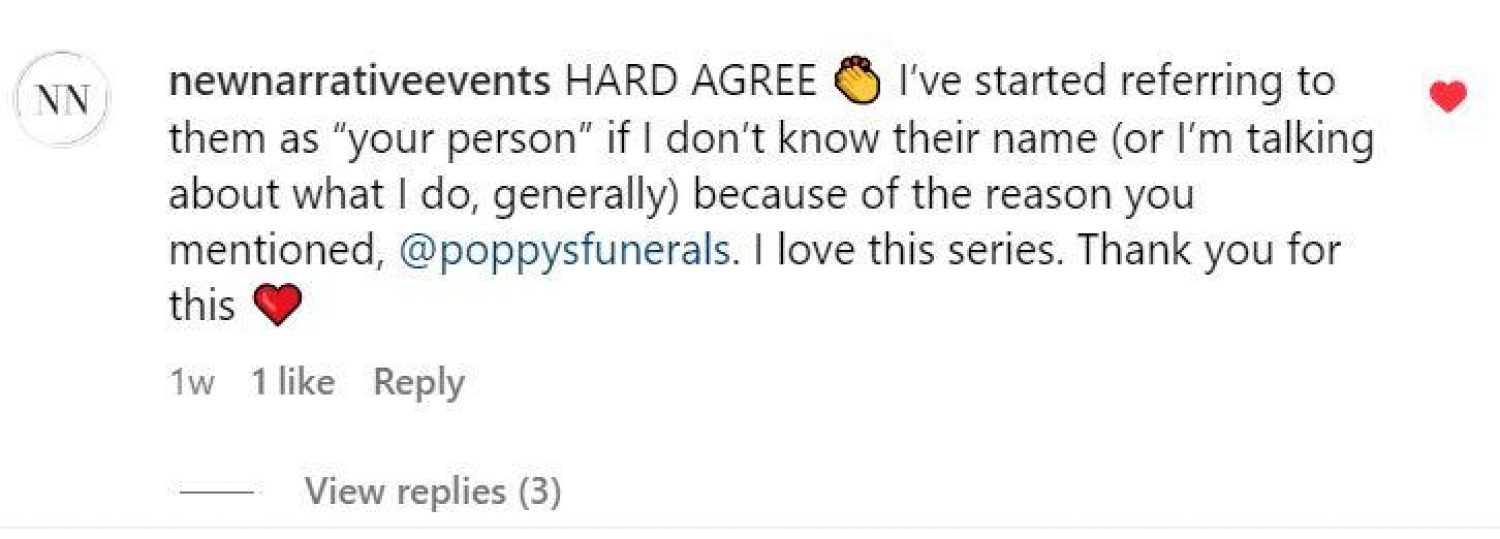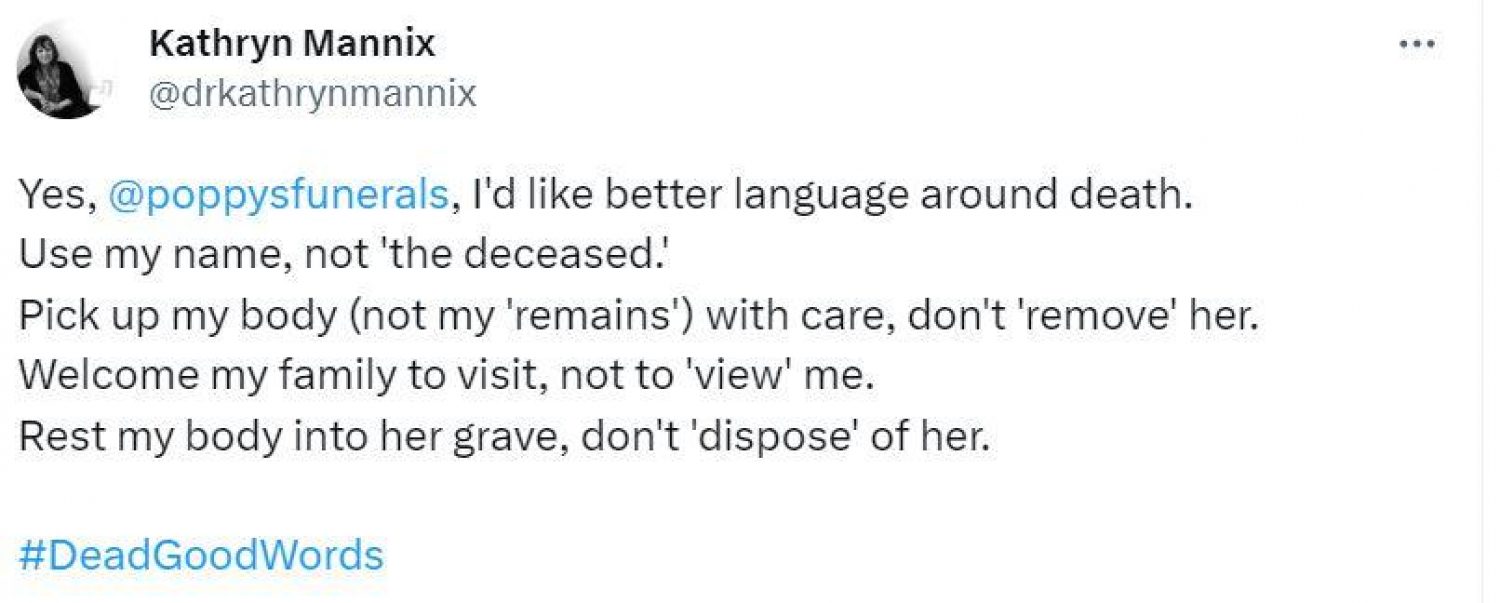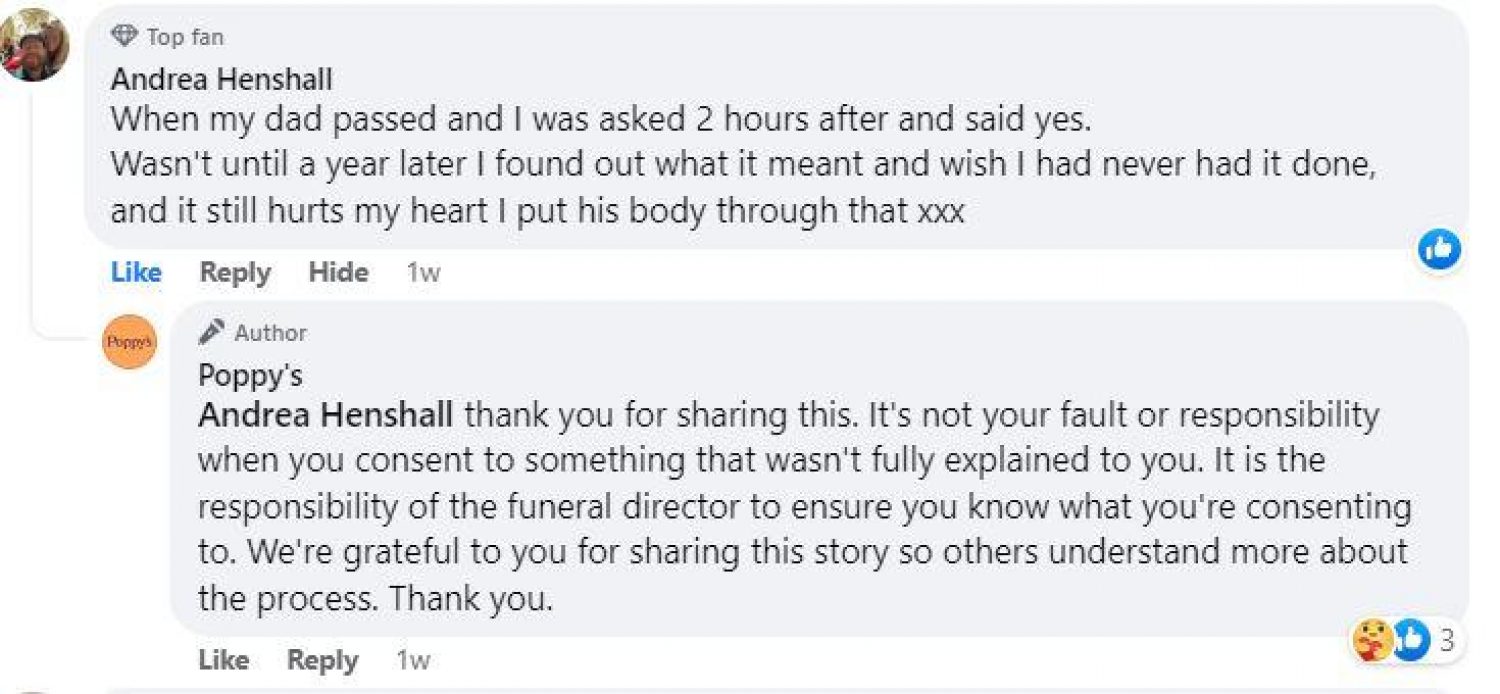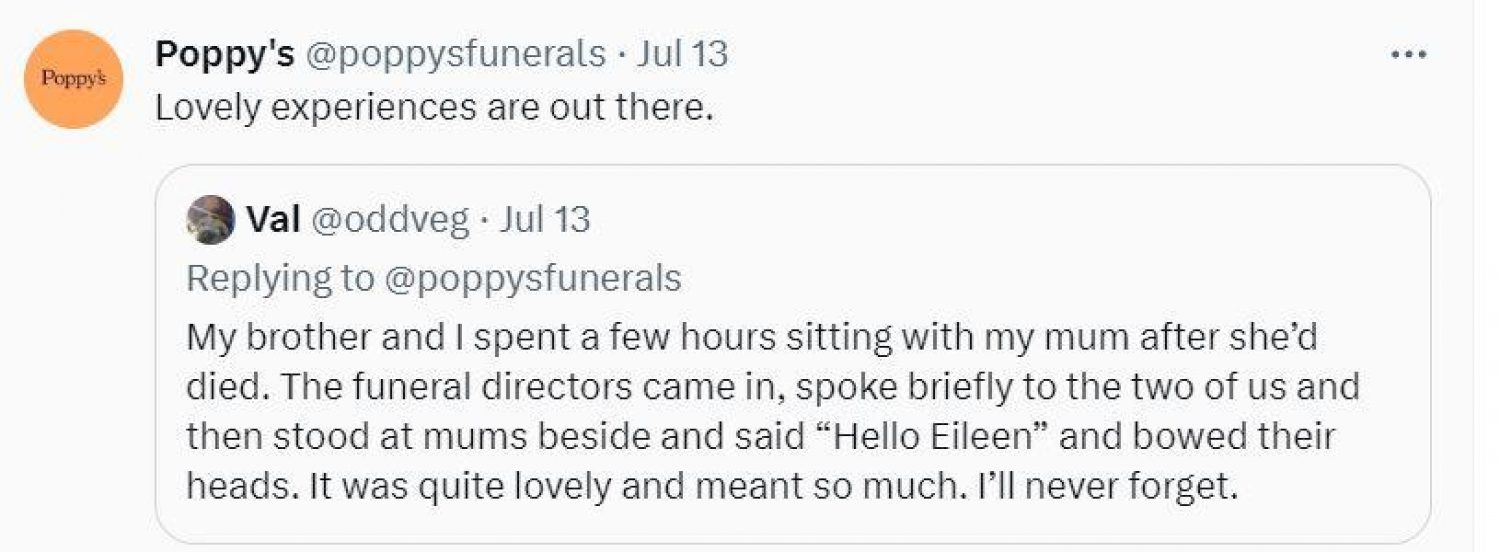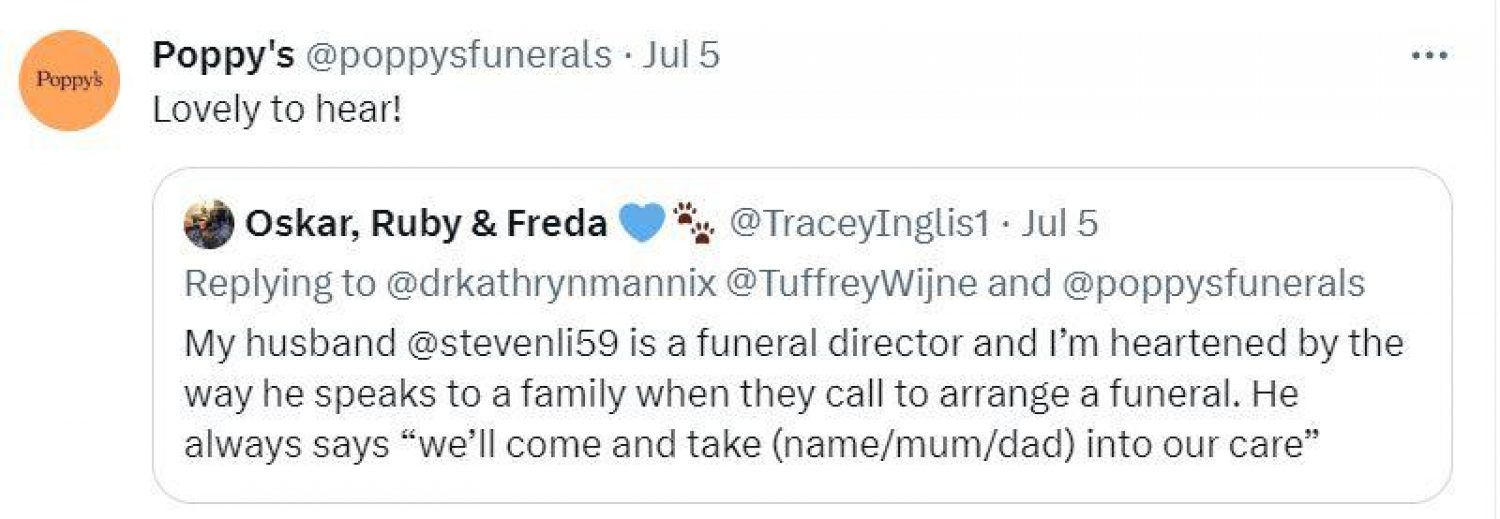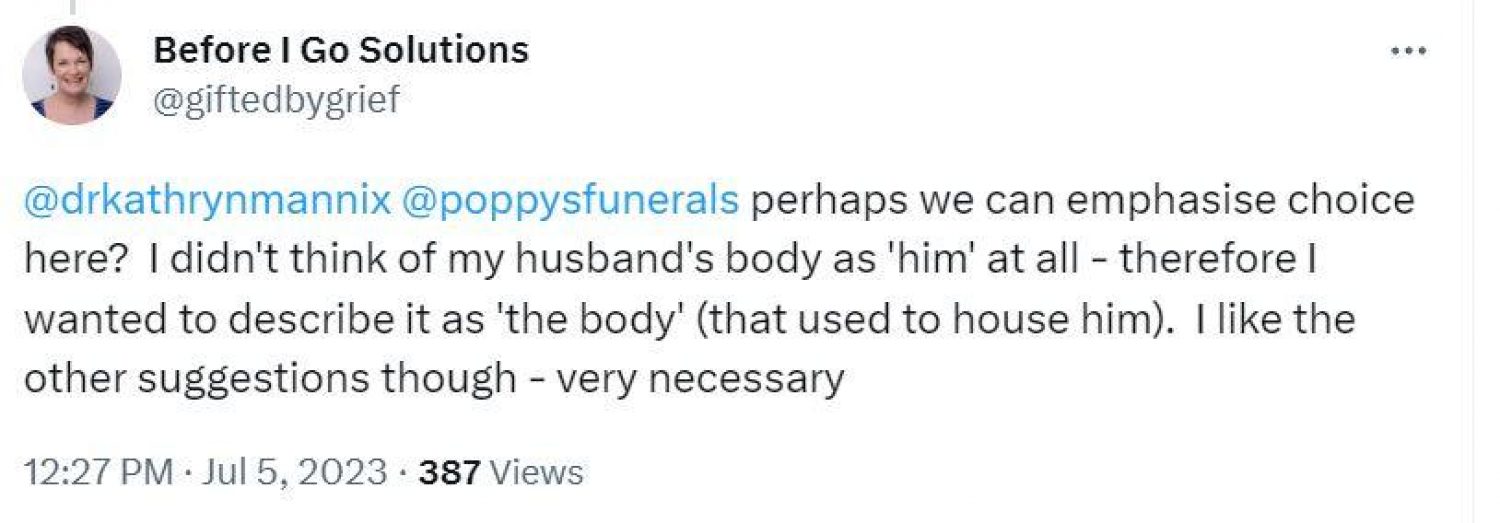Two minute read
When we launched our #DeadGoodWords campaign in July 2023, we hoped — but didn't know — that it would resonate with people. The response has been amazing.
We know there's much more to say, and this conversation needs to continue, but now feels like a good time to share five things we've learnt from the campaign so far.
1. We're not alone in this.
Celebrants, bereaved people, healthcare workers and funeral directors have all joined in the discussion, sharing their ideas, experiences and suggestions for other words that need to change. There has been such enthusiasm and a clear recognition, which stems from real-life experience, that language matters.
2. 'Disposal' provokes a strong reaction.
Our #DeadGoodWords Twitter poll showed that this was the word people most wanted to see changed.
Even for a word mainly used on paperwork and legal documents, rather than in conversations with grieving friends and relatives, we believe it still influences attitudes by framing a person's body as waste.
And you agreed. It's time for 'disposal' to go!
3. You shared some brave and challenging stories...
We were touched and saddened to read some of your responses to the campaign. We are so grateful that people were willing to share their difficult personal experience to help others.
The importance of clear and compassionate language, informed choice for bereaved people, and transparency at every step of the way, came into particular focus around embalming.
4. ... And some beautiful examples of great care.
We loved reading examples of how language is being used in respectful, person-centred ways by people working within the funeral sector.
It's clear that these positive experiences have a lasting impact on people long after the funeral is over.
5. We won't all agree on the same words, but we can still work together.
We made some suggestions for positive words and phrases to replace those which are impersonal, unclear or offensive.
Not everyone agreed with our ideas for new language, but everyone who responded agreed with the principles behind them — the importance of listening to a person's family and friends and, above all, treating someone who has died with the respect, care and dignity that you would when they were alive.
This campaign is not separate from our everyday work, providing outstanding care for the living and the dead. It's based on our experience and will continue to inform and shape everything we do at Poppy's.
To keep in touch with us, and with #DeadGoodWords, you can sign up to our enewsletter here or contact us if you need help planning a funeral.
